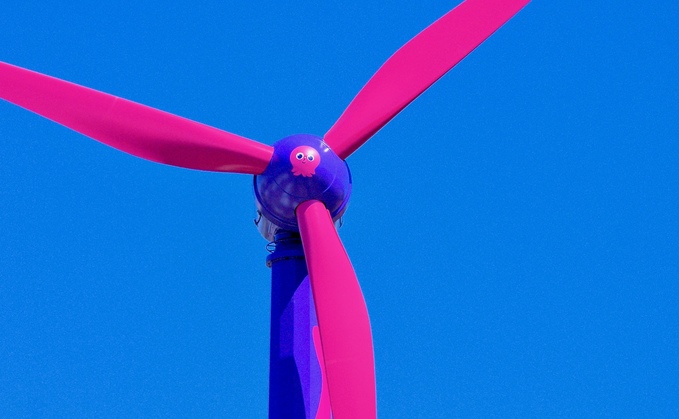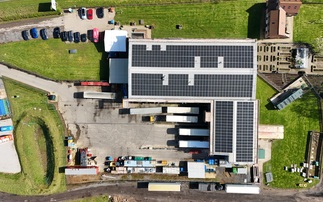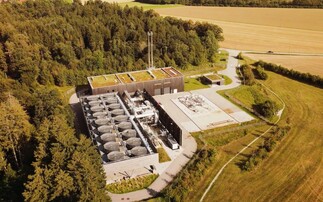Credit: Octopus Energy
Octopus Energy calls for urgent action to tackle a grid connection queue that has grown to more than 700GW in the past year
Octopus Energy has urged policymakers to scrap a "first come first served" approach to bringing renewables generation and energy storage capacity onto the grid, after the UK's connection queue grew by roughly 500GW in the past 12 months.
The UK's largest domestic electricity supplier today published an update to its report of last year, titled End the Gridlock, arguing that grid constraints have become an "issue of national importance" with the queue to connect to the grid having grown from over 200GW a year ago to more than 700GW today.
The latest report - End the gridlock: One year on - acknowledges network companies, energy firms, regulators, and government are all working to try and accelerate grid connections. For example, Ofgem and the Department for Energy Security and Net Zero (DESNZ) have set out six priority action areas to reduce grid connection wait times and the Energy Networks Association has published an action plan on behalf of distribution network operators (DNOs).
But the report warns that "despite all these efforts, developers are still sitting on shovel ready projects, waiting to connect".
"Quick wins have been slow to materialise, holding back deployment of the cheap, green energy that we urgently need to reduce customer bills, safeguard our energy independence, and deliver the 2035 net zero power system goal.
"It's crucial now that we translate industry commitments and political intent into real traction through actions that deliver tangible wins for projects on the front line of this crisis."
Octopus is urging policymakers to create an "open source" connections process providing data and tools for developers to conduct their own network analysis and help make best use of existing grid capacity. The report argues that such an approach would also help to ensure the highest quality projects that can deliver the biggest emissions and cost savings can move up the grid connection queue and be developed first.
"It's time to drop 'first come first served' forever and focus on allocating grid capacity to those projects that will best help us deliver a Net Zero future," the report stated. "This means a new process to align transmission and distribution, with scope to accelerate viable and valuable low carbon projects."
Moreover, Octopus called for new measures to enable wider industry collaboration to identify priority zones for renewables development, which would allow developers to share data, costs, and infrastructure to further accelerate the clean energy roll out.
It added that such reforms should be accompanied by changes to the planning system to speed up approvals, an effective governance regime, and clear regulatory incentives for network companies to deliver more grid capacity and faster connections.
Longer term, Octopus mapped out plans for a "grid utopia" in which developers are potentially provided with a worst case or "backstop" connection date using an open source application process and connections are queued based on merit determined by shared data.
The report echoes long-standing complaints from clean energy developers, who have repeatedly argued that they could deliver much-needed, low-cost clean energy capacity within a handful of years if lengthy planning and grid connection delays were addressed.
Alison Miles, senior development project manager at renewable energy asset developer Gridsource, said the government should be taking a more "pre-emptive approach" to network investment to unblock the ongoing connection queue.
"Project connections should be assessed in a strategic way, with investments sequenced to optimise planning, procurement and minimise the amount of disruption needed over the long term," she said.
Ian Curry, technical director at Wind2, said the UK risked falling behind its competitors in the use of technology to optimise the grid. "The UK is not unique in terms of capacity constraints on the grid," he said. "We need a step change in bravery to move out of an ultra-conservative approach on network planning".
Octopus' report comes just days after the Labour Party, Conservatives, and Liberal Democrats each set out plans to address the UK's grid connections queue in their 2024 General Election manifestos.
The Conservatives promised to implement recommendations from last year's Winser Review, which included a raft of proposals to cut waiting times to get new power sources connected to the UK grid that could save homes £15 to £25 per year through to 2035.
Labour's manifesto confirmed its intention to deliver a raft of energy policy changes through "a new Energy Independence Act" and signalled plans to speed up grid connections and upgrade national transmission infrastructure. Speaking over the weekend, Labour leader Keir Starmer highlighted the decade-long waits some renewables developers were facing for new wind farm projects and promised that a Labour government would speed up planning and grid connection processes.
In addition, the Lib Dems set out plans to accelerate the deployment of renewables by removing restrictions on new solar and wind power projects, supporting investment and innovation in tidal and wave power, introducing a formal ban on new coal mines, and investing in energy storage - including green hydrogen, pumped storage, and battery capabilities.
Keep up to date with all the latest green business news by signing up to the free Daily and Weekly BusinessGreen Newsletters.









